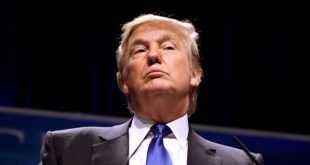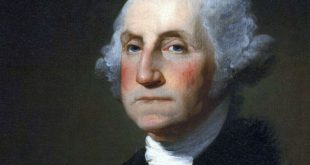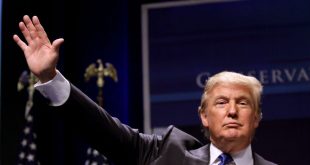 No one living has missed the slogan “Black Lives Matter”! Even presidential contenders have been scolded because of their opinions about this slogan. But what about the economics of the black and brown communities?
No one living has missed the slogan “Black Lives Matter”! Even presidential contenders have been scolded because of their opinions about this slogan. But what about the economics of the black and brown communities?
As the United States continues to become increasingly racially and ethnically diverse, the wealth gap between the races has reached a 24 year high. According to the Pew Research Center, white households today have about 16 times the wealth of black households, compared to having just 8 times the wealth in 2010. There are many reasons for this widening gap, but according to a policy brief by the Institute on Assets and Social Policy at Brandeis University, the main drivers include inequalities in homeownership, household income, unemployment, education, and wealth gained through inheritance. Also concerning was the study’s finding that, “Equal achievements, such as income gains, yield unequal wealth rewards for whites and African-Americans.”
In short, blacks who do earn more do not accrue as much wealth to pass on to their children. The black American wealth gap extends to other racial and ethnic groups as well. Hispanics, though still earning far less than whites, are still earning more and accumulating more wealth than African Americans, and Asian Americans appear to be closing the wealth gap the fastest. Although a relatively small percentage of the overall population, the median Asian household income and average level of education are already higher than those of whites. Asian American wealth has risen 43 percent since 1989; white wealth rose only 3 percent during the same time period. Homeownership, long touted as the key to the American Dream, does not seem to grow wealth equally among the races. The Washington Post recently reported on how the housing recovery in the majority-black Prince George’s County has lagged far behind the recovery in neighboring white suburbs:
“But today, the nation’s highest-income majority-black county stands out for a different reason — its residents have lost far more wealth than families in neighboring, majority-white suburbs. And while every one of these surrounding counties is enjoying a strong rebound in housing prices and their economies, Prince George’s is lagging far behind, and local economists say a full recovery appears unlikely anytime soon.”
Unfortunately, many homeowners had not only purchased large, expensive homes, but had also borrowed against the equity when housing prices were at their highest. It’s not at all unusual for a family to owe $300,000 on a home worth only $150,000. The article goes on to note that a similar dynamic is playing out across the country where the housing bust is causing middle class blacks to watch an entire generation of wealth disappear despite the astounding political gains of the past 40 years.
Why are black Americans continuing to lag so far behind not only whites, but also other minorities, many of whom must overcome language barriers to succeed and build wealth? One clue may lie in the fact that spending, savings and investing habits tend to vary by race. The Urban Institute reported that—even when controlling for income—black Americans save less than their white and Asian counterparts. The annual Ariel-Schwab Black Investor Survey has repeatedly found that even when controlling for age, income, gender and education, whites are nearly twice as likely as blacks to be investors. All this has implications for wealth-building. According to Forbes, “A white family will typically see a return of $19.51 for each [additional] dollar earned, while a black family will see only $4.80 in return and Latino families $3.63.”
Consumer spending also varies greatly by race and ethnicity. According to the Selig Center for Economic Growth, blacks spend well above the average American household on footwear and electronics, while Asians spend more on education. In fact, as has been well-reported in the past, blacks spend 70 percent less on college than whites, while Asians spend 50 percent more. These numbers, however, are much closer when controlling for income.
There are several important lessons we can draw from these facts, the first of which is that any attempts to close the wealth gap must be focused on lifting up those at the bottom, not bringing the top down. This means focusing on both economic growth and greater job creation, without sacrificing efficiency and innovation. Bemoaning the gains of the 1 percent may resonate with many people’s emotions, but it does nothing to generate wealth or opportunity for the 99 percent.
Better jobs created by a growing business sectors is one of the long term solutions to the problem of the economic wealth gap. We also want to take steps to ensure that people with less wealth learn to save and grow the money they have. I believe churches have a unique and important role to play in helping to provide better schools, teach sound financial habits and wealth-growing strategies, and encourage family stability.
 Bishop Harry Jackson is chairman of the High Impact Leadership Coalition and senior pastor of Hope Christian Church in Beltsville, MD.
Bishop Harry Jackson is chairman of the High Impact Leadership Coalition and senior pastor of Hope Christian Church in Beltsville, MD.
 Black Community News News and Commentary for Christians
Black Community News News and Commentary for Christians




It’s interesting the author mention churches role in closing the wealth gap.
Black churches raise millions of dollars on Sunday across America. By Monday morning nearly all of this money is in white own banks providing loans and business opportunities to white businesses and white investors…….and you wonder why there is a big wealth gap between blacks and whites. Please !!!!!!!
Ask yourself…….do this make any sense. Why give away economic power when your people need it the most.
The primary cause of any disparities between groups is the formation and recognition of those groups. In 1972 the Nixon Administration invented “Hispanics” which instantly created millions of minority individuals out of former white people. When we celebrate “diversity” we do nothing more than promote our own division and play into the hands of those who invented it–the super rich, mostly white, elitist oligarchy.